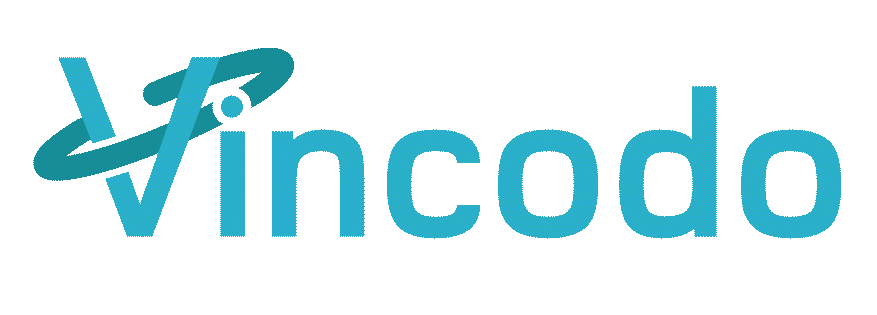Since the marketing world evolved with the introduction of internet, the desire to understand the tangible performance of advertising campaigns has increased. As privacy concerns rose, efforts by various tech companies, led by Apple, began to introduce functionalities aimed at deleting third-party cookies. ITP 2.2 was launched in April 2019 that dramatically changed tracking, but Google and its Chrome browser has been a holdout until now.
In January 2024, Google revealed that it had finally begun the rollout of a third-party cookie-restricted Chrome browser with 1% of its user base upgraded to the new version. This change resulted in 30M users losing third-party conversion tracking instantly. Google also shared that its goal is to transition all of its users to new third-party cookie-restricted version before the end Q3 2024. Google has not provided any updates as to how many users have been transitioned since January, but it is fair to assume that the number is growing and you are losing performance tracking if you have not enabled Enhanced Conversions.
What Does This Mean For Cookies?
It is important to keep in mind that first-party cookies set by your website are not affected. These changes are related to third party cookies only that enable media providers to track alongside your internal tracking tools. Work around tools such as Conversion Linkers are becoming less effective in working around the ITP 2.2 restrictions. The overall impact has led to underestimating conversions from 10% to 30%. As more Chrome browsers transition to Third Party Cookie Deprecation, the gap will continue to widen for advertisers that haven’t taken action to identify conversions in different manners
What Is Google Enhanced Conversions?
The Enhanced Conversion functionality was initially launched in May 2021 with few Advertisers jumping on board given Chrome’s prevalence in browser usage was limiting data loss overall Enhanced Conversions are aimed at finding the gaps of performance tracking loss by using first party hashed data matching to supplement missing data. Google takes your hashed data, matches it to signed in users and attributes the additional conversions to the associated campaign.
How Do I Get Enhanced Conversions Setup before July, 2024?
First it is important to note that Enhanced Conversions needs to be enabled for both Google Ads and Google Analytics. Each of these needs to be implemented independent of one another. If you have been utilizing Google Analytics to trigger your conversion activities in Google Ads, it is advisable to switch back to Google Ads pixel tracking for a variety of reasons since the GA4 rollout in the last year has likely resulted in undercounting conversions.
Here Is what you need to do:
- Step 1 – Enable Enhanced Conversion Inside Google Ads
-
- Navigate to the Conversions section in Google Ads
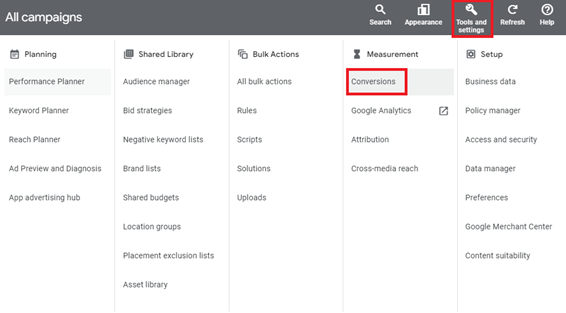
- Choose the Conversion Action To Upgrade To Enhanced Conversions
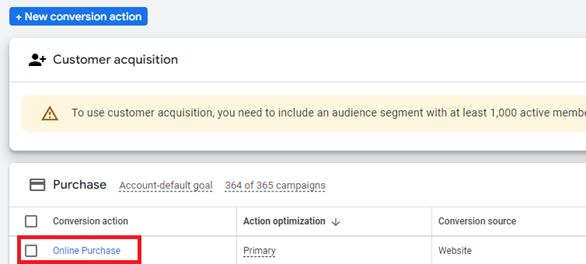
- Select Checkbox to Enable Enhanced Conversions
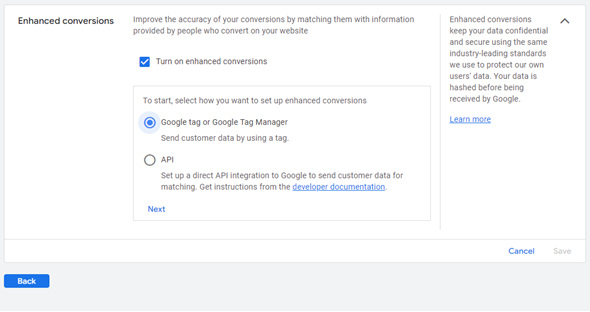
- Select Google Tag or Google Tag Manager option
- Accept Google Terms of Service acknowledgement
- Hit Next and conduct the Check URL to confirm Tags are on the website
- Navigate to the Conversions section in Google Ads
- Step 2 – Implement Using Google Tag Manager
- Select and click on your Google Conversion tag inside GTM
- Within Tag Configuration, select “Include user-provided data from your website”
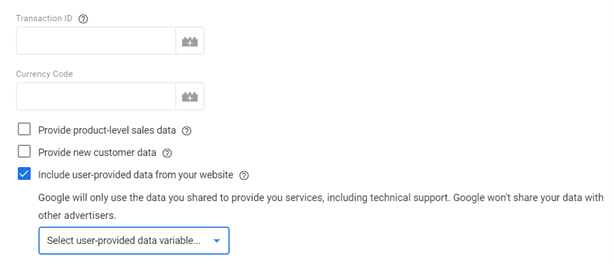
- Create New Variable or Select Existing Variable With User-Provided Data
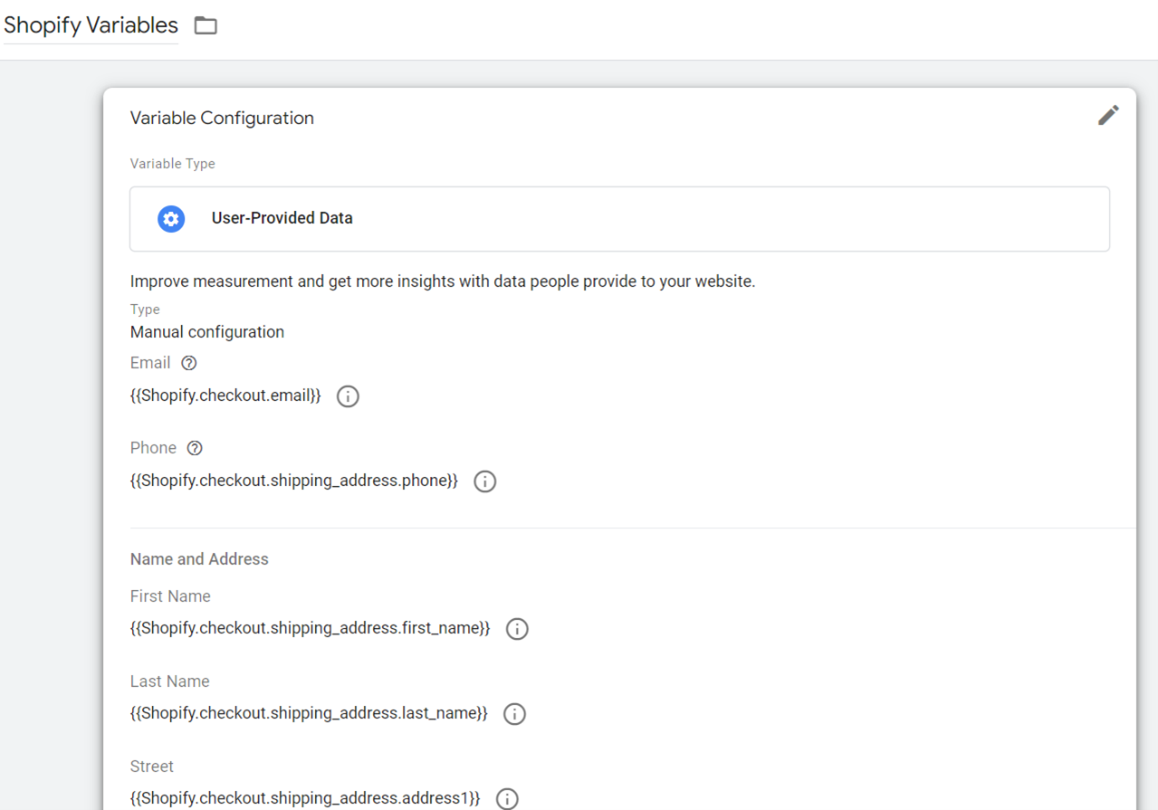
- Select Automatic Collection or Manual Configuration
- Save Variable Settings and Save Tag updates
- Select and click on your Google Conversion tag inside GTM
The aforementioned step by step process should work for the vast majority of Advertisers. For those with custom website design platform additional steps may be required to implement Custom JavaScript and scrape information underlying in code. For more details, visit Google’s help section at: https://support.google.com/google-ads/answer/13262500?hl=en#zippy=%2Cset-up-standard-automatic-enhanced-conversions
With Google’s shift to Automated Bidding and Performance Max, it is imperative that all Advertisers comply with and implement Enhanced Conversions to support their successful marketing efforts. The more conversion data Google is supplied, the better their algorithms will work in the Advertisers favor. If Google believes that certain signals don’t provide conversions, the algorithm will seek out different users to serve your ads towards and your campaigns can be negatively impacted while restricted in value.
Expected deprecation of Chrome’s third-party cookie tracking is August 2024, so the time is NOW to get this effort on your development roadmap before Q3 2024. Thankfully, this is not an overwhelming project, just a few hours of time even if you need to customize. The increase in tracking recognition will keep informing Google’s algorithm of your success and will help better align your marketing mix budget decision making.
